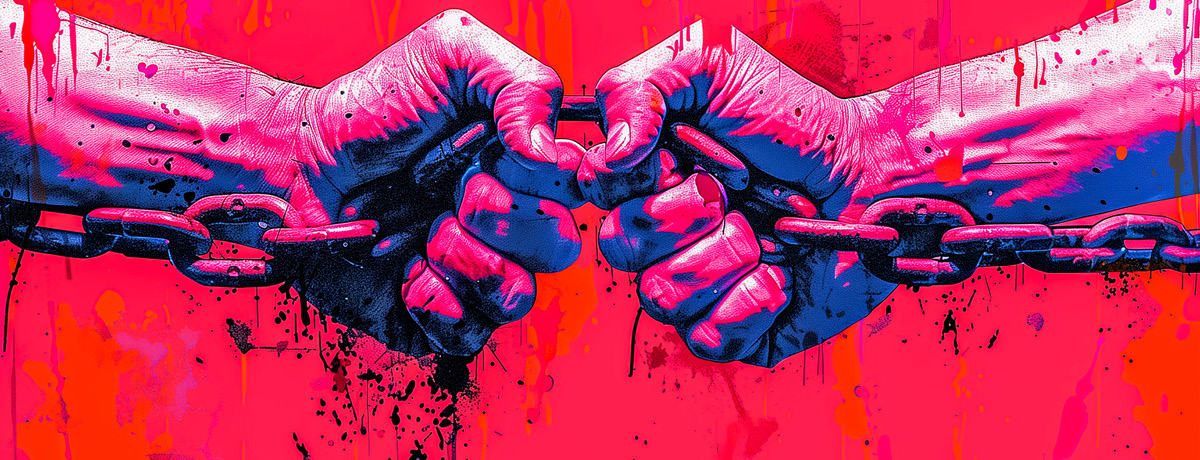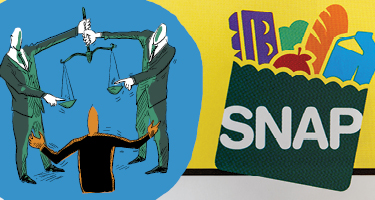Long a leader in criminal justice reform, the California legal system has been shaped by landmark legislation and evolving public sentiment.
As California grapples with dilemmas such as prison overcrowding, crime rates and public safety, voters often turn to ballot measures to make significant changes.
A new piece of legislation, Proposition 36, seeks to recall parts of Proposition 47 and impose stricter sentencing laws on repeat offenders. Recalling Prop 47 would mean reversing some of the reduced penalties for nonviolent crimes, reclassifying certain offenses from misdemeanors back to felonies, particularly for repeat offenders.
California voters will have the opportunity to decide on this ballot initiative during the statewide election in November 2024.
This article provides a guide to the nuances of California criminal law, highlighting Prop 36 California 2024 and its potential impact on state’s justice system, and analyzing how it aligns with the state’s ongoing efforts to balance public safety and criminal justice reform.
California’s Criminal Justice System: Past, Present and Key Reforms
To fully understand the significance of Proposition 36, it is essential to look at the evolution of California's criminal justice system, from its tough-on-crime policies of the past to the more reform-minded approach of recent years.
Historical Context of Criminal Justice Reform in California
California’s approach to criminal justice has undergone significant changes over the past several decades. The state’s notorious The Three Strikes and You're Out Law, enacted in the mid-1990s, was designed to impose harsher penalties on repeat offenders.
This policy led to a dramatic increase in the state’s prison population, contributing to severe overcrowding and placing significant financial strain on the state. Over time, public opinion shifted as concerns about mass incarceration, racial disparities in sentencing and the efficacy of such harsh laws grew.
These concerns prompted a series of reforms aimed at reducing prison populations and shifting the focus to rehabilitation. Key reforms Propositions 47 and 57 sought to reduce penalties for nonviolent crimes and provide more opportunities for early parole.
Key Criminal Justice Reforms Leading to Ballot Proposition 36 California
Proposition 47, passed in 2014, was a major step toward reducing incarceration for nonviolent offenses. The measure reclassified certain low-level crimes, such as drug possession and petty theft, from felonies to misdemeanors, significantly reducing the number of people sentenced to long prison terms.
Two years later, Proposition 57 was introduced, further expanding parole opportunities for nonviolent offenders. This initiative sought to lower recidivism by encouraging inmates to participate in rehabilitation programs that could shorten their sentences.
While these reforms were seen as progress toward a more rehabilitative system, critics argue they led to an increase in property crimes and gave repeat offenders leniency. These issues paved the way for Proposition 36, which seeks to reverse parts of Prop 47 that some believe have jeopardized public safety. The ongoing California Prop 47 recall effort centers on addressing these concerns, with a focus on stricter penalties for repeat offenders.
Current Challenges in California’s Criminal Justice System
Despite the reforms, California’s criminal justice system continues to face significant challenges. Prison overcrowding remains an issue, with some facilities operating at or above capacity.
Additionally, the recidivism rate—the likelihood that released prisoners will reoffend—remains high, raising concerns about the effectiveness of current rehabilitation programs.
Ballot Proposition 36 California: What It Is and What It Aims to Do
Prop 36 2024 seeks to tighten sentencing laws for repeat offenders, particularly those with multiple serious or violent convictions. The measure addresses what its supporters see as loopholes in Proposition 47, which they argue have allowed repeat offenders to avoid significant punishment.
By reinstating felony charges for individuals convicted of multiple offenses, Prop 36 aims to deter repeat criminal activity and enhance public safety. However, critics caution that the measure risks reversing progress in reducing incarceration, potentially leading to a resurgence in punitive sentencing practices without addressing the root causes of crime.
California Prop 47 Recall: The Controversy
Proposition 47 was seen as a landmark reform aimed at reducing prison overcrowding by lowering the classification of certain nonviolent crimes from felonies to misdemeanors.
It allowed thousands of individuals convicted of drug possession, petty theft and other minor offenses to either serve reduced sentences or avoid prison time altogether. Supporters praised Prop 47 as a progressive measure that aligned with California’s broader shift toward rehabilitation and reducing the overall incarceration rate.
However, law enforcement agencies and some members of the public argue that the law has inadvertently contributed to an increase in certain types of crimes, particularly property crimes.
According to these critics, the reclassification of crimes has allowed repeat offenders to avoid significant penalties, creating a revolving door of criminal activity. Opponents also argue that Prop 47 has emboldened repeat offenders by reducing the consequences of their actions, particularly in urban areas where crime rates have reportedly increased since the measure was passed. Dissatisfaction with Proposition 47 sparked the movement for Prop 36 California 2024.
Legal Implications of CA Prop 36
If Prop 36 2024 is passed, it will mark a significant shift in California's approach to handling repeat offenders. By reinstating felony charges for individuals convicted of multiple nonviolent offenses, the proposition signals a return to stricter sentencing laws. Supporters argue this approach will deter habitual offenders and enhance public safety by ensuring repeat offenders face more severe consequences.
Critics warn that harsher sentencing guidelines under Prop 36 could reverse the gains made in reducing incarceration, particularly for repeat offenders of nonviolent crimes. This has raised concerns about a potential shift away from rehabilitation, leading to an increase in the prison population.
The debate surrounding Proposition 36 highlights the broader tension between punishment and rehabilitation in California's criminal justice system. While the measure seeks to address public safety concerns, critics argue it risks reigniting a cycle of mass incarceration without addressing the root causes of crime, such as lack of access to mental health and rehabilitation programs.
Pending Legislation and Legal Trends in Criminal Justice Reform California
California’s approach to criminal justice is in flux, with multiple legislative efforts aimed at reforming or reinforcing certain aspects of the system. Alongside Proposition 36, there are several other pieces of legislation pending that seek to address issues like prison overcrowding, sentencing reform and rehabilitation.
Senate Bill 81
Senate Bill 81 (SB 81) is a notable reform that seeks to limit the use of sentence enhancements, particularly for nonviolent crimes. Sentence enhancements—additional penalties added to a sentence based on prior offenses or the circumstances of the crime—have historically contributed to longer prison terms and higher incarceration rates.
SB 81 allows judges more discretion in dismissing these enhancements when there are mitigating factors, such as mental illness or trauma. This bill is seen as part of California’s broader push to reduce excessive sentencing and focus more on rehabilitation than punishment.
Senate Bill 94
Another important measure is Senate Bill 94 (SB 94), which provides a "second look" at life sentences. This bill allows individuals serving life without the possibility of parole, particularly those convicted of crimes committed before the age of 25, to petition for resentencing after serving 25 years.
This bill reflects the growing recognition that long sentences may not always serve the interests of justice, especially when considering rehabilitation and personal growth. SB 94 represents another step toward California's efforts to address the long-term effects of harsh sentencing policies.
Legal Complexities and Idiosyncrasies of California’s Criminal Justice System
California’s criminal justice system is unique in many ways, particularly in its reliance on ballot propositions to enact major legal changes. This voter-driven process has allowed the public to have a direct say in shaping the state’s laws, but it has also introduced complexities that make the legal system more difficult to navigate.
One of the key idiosyncrasies of California’s system is its approach to sentencing. The state's history of punitive policies has created a system where repeat offenders face significantly harsher penalties than in other states.
While recent reforms have attempted to reverse some of these policies, Proposition 36 California could mark a return to more stringent sentencing laws for certain crimes.
Additionally, California’s legal system is influenced by public sentiment, which can fluctuate over time. This is evident in the shift from the “tough on crime” era of the 1990s to the more reform-minded policies of the 2010s.
However, measures like Prop 36 California 2024 suggest that there is still strong public support for stricter laws in certain areas, particularly when it comes to addressing repeat offenders.
While ballot propositions enable rapid legal changes in California, they also mean that the state’s laws can shift significantly based on changing public opinion.
The Future of Criminal Justice Reform in California
The future of criminal justice reform in California is uncertain. While the state has made critical strides toward reducing incarceration and focusing on rehabilitation, measures like CA Prop 36 show that there is still significant debate over how to address issues like recidivism and public safety. Regardless of the outcome of the 2024 election, criminal justice reform in California will remain a critical issue for years.
Stay Updated and Protect Your Rights
With Prop 36 California 2024 and other criminal justice reforms on the horizon, it is essential to stay prepared. Visit our page on Criminal Defense in California to connect with experienced defense lawyers who can help you navigate potential legal changes and ensure your rights are protected.































